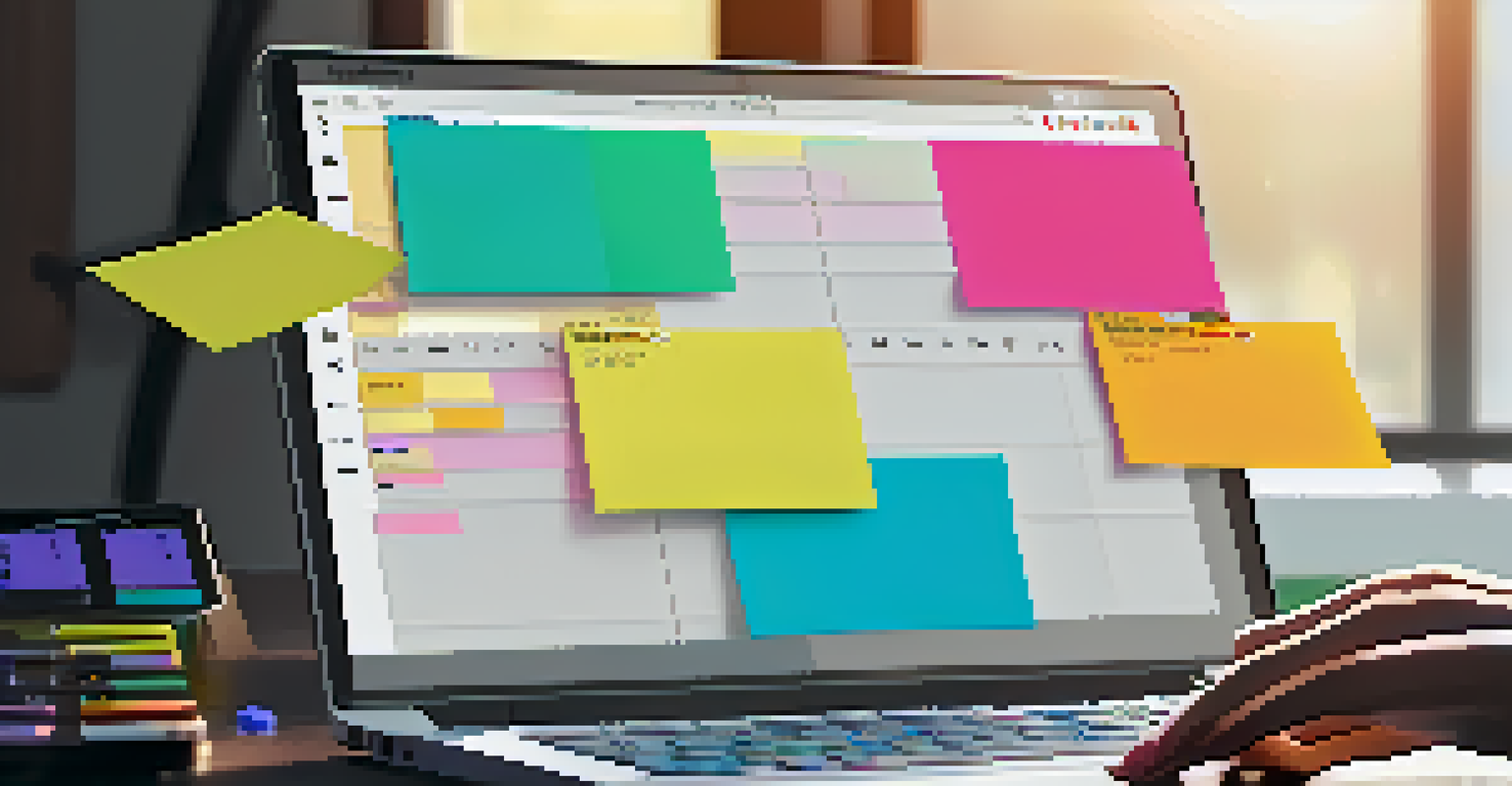Client Management Tips for Freelancers in 2024

Establish Clear Communication from the Start
Effective client management begins with clear communication. Right from the initial contact, it's crucial to set expectations and discuss project details. This helps avoid misunderstandings and ensures everyone is on the same page.
The single biggest problem in communication is the illusion that it has taken place.
Consider using tools like Slack or Trello for ongoing conversations and updates. These platforms allow you to share information easily and keep your clients informed about progress. When clients feel in the loop, they’re more likely to be satisfied with your work.
Remember, communication isn’t just about talking; it’s also about listening. Encourage your clients to share their ideas and feedback. This two-way street fosters a collaborative environment that can lead to even better results.
Set Realistic Deadlines and Stick to Them
Deadlines can make or break a project, especially in freelancing. When you set a deadline, ensure it’s realistic based on your workload and the complexity of the task. Overpromising can lead to missed deadlines and unhappy clients.

Use project management tools to track your tasks and deadlines. This can help keep you organized and accountable. Plus, it’s a great way to visually communicate timelines to your clients, so they know what to expect.
Clear Communication is Key
Establishing clear communication from the start helps set expectations and fosters a collaborative environment.
If you anticipate any delays, communicate them promptly. Clients appreciate honesty and transparency, and addressing potential issues early can help maintain trust and confidence in your abilities.
Create Detailed Contracts to Protect Yourself
A well-structured contract is a freelancer’s best friend. It outlines the scope of work, payment terms, and deadlines, serving as a reference for both you and your client. This clarity can prevent many common disputes.
Time is what we want most, but what we use worst.
Make sure to include clauses that address revisions, cancellations, and payment schedules. Clients might not read every detail, but having these points clear can save you from potential headaches later on.
Also, don’t hesitate to revisit the contract with your client as needed. If the project scope changes, updating the agreement keeps everything aligned and avoids misunderstandings.
Cultivate Strong Relationships with Clients
Building a good rapport with your clients can lead to repeat business and referrals. Take the time to get to know them, ask about their goals, and show genuine interest in their needs. A personal touch can make a big difference.
Regular check-ins, even when a project isn’t underway, can keep your connection alive. Sending a quick message or sharing relevant industry news shows that you care and keeps you top-of-mind for future opportunities.
Realistic Deadlines Build Trust
Setting and adhering to realistic deadlines enhances client satisfaction and maintains trust in your abilities.
Lastly, always express gratitude. A simple ‘thank you’ after completing a project can leave a lasting impression and encourage clients to return for more work.
Manage Your Time Effectively to Avoid Burnout
Time management is crucial for freelancers, especially when juggling multiple clients. Use techniques like the Pomodoro Technique or time blocking to structure your workday. This helps maintain focus and allows you to allocate time efficiently.
Don’t forget to schedule breaks! It might seem counterintuitive, but short breaks can actually boost your productivity. Stepping away from your work can refresh your mind and enhance creativity.
Lastly, learn to say no when your plate is full. Taking on too much can lead to burnout, which ultimately affects your work quality. Prioritize your well-being for long-term success.
Keep Your Skills Sharp and Stay Updated
In a fast-paced world, staying updated with industry trends is essential. Invest time in learning new skills or tools relevant to your field. Online courses and webinars are great resources to enhance your expertise.
Sharing your newfound knowledge with clients can also enhance your credibility. When clients see that you’re knowledgeable and adaptable, they’re more likely to trust you with their projects.
Feedback Fuels Improvement
Gathering feedback from clients post-project provides valuable insights for enhancing your services and performance.
Moreover, continuously improving your skills can open doors to new opportunities. As you grow, you might find yourself attracting clients who value expertise and are willing to pay more for it.
Gather Feedback to Enhance Your Services
Feedback is a powerful tool for growth. After completing a project, ask your clients for their thoughts on your work and the overall experience. This information can help you identify areas for improvement.
Consider using surveys or follow-up emails to gather feedback effectively. These can be simple questionnaires that clients can fill out at their convenience, making it easy for them to share their insights.

Embrace both positive and negative feedback. Positive comments can boost your confidence, while constructive criticism can provide valuable lessons. Each piece of feedback is a step towards becoming a better freelancer.
Utilize Technology to Streamline Your Workflow
Technology can be a game-changer for freelancers. Utilize tools for invoicing, project management, and communication to streamline your workflow. This not only saves time but also enhances your professionalism.
For instance, platforms like Asana or Monday.com can help you organize tasks and collaborate with clients seamlessly. Using these tools can make your projects more efficient and enjoyable.
Lastly, keep an eye on emerging technologies relevant to your field. Adopting new tools early can set you apart from the competition and showcase your commitment to innovation.